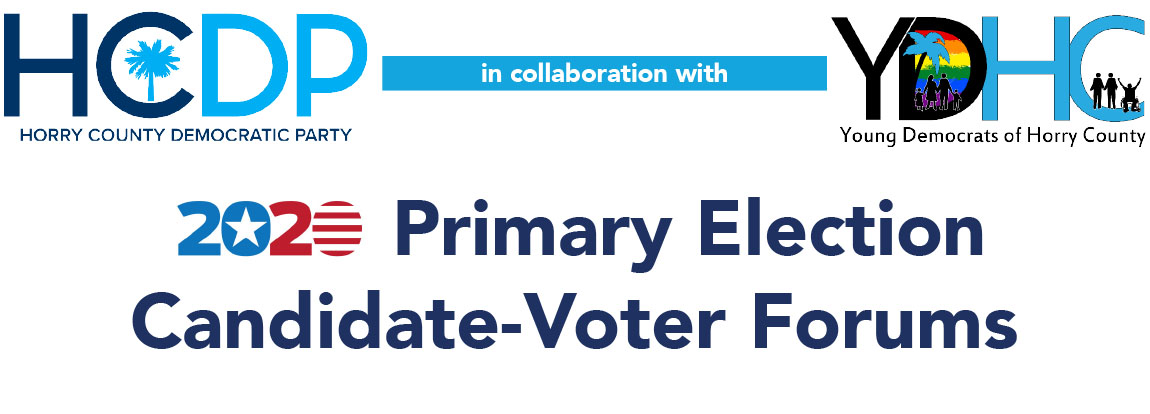By Dameion B. Fowler
It is now time for Horry County Schools to support efforts to phase out and eliminate the use of exclusionary discipline in early childhood educational settings (pre-School-2nd grade).
The following is taken from the policy statement on this issue released by the Department of Health and Human Services and the Department of Education:
Recent data indicate that expulsions and suspensions occur at high rates in preschool settings. This is particularly troubling given that research suggests that school expulsion and suspension practices are associated with negative educational and life outcomes. In addition, stark racial and gender disparities exist in these practices, with young boys of color being suspended and expelled much more frequently than other children. These disturbing trends warrant immediate attention from the early childhood and education fields to prevent, severely limit, and work toward eventually eliminating the expulsion and suspension – and ensure the safety and well-being – of young children in early learning settings.
The statement goes on to say:
Suspension and expulsion can influence a number of adverse outcomes across development, health, and education. Young students who are expelled or suspended are as much as 10 times more likely to drop out of high school, experience academic failure and grade retention, hold negative school attitudes, and face incarceration than those who are not…
…Not only do these practices have the potential to hinder social-emotional and behavioral development, they also remove children from early learning environments and the corresponding cognitively enriching experiences that contribute to healthy development and academic success later in life. Expulsion and suspension practices may also delay or interfere with the process of identifying and addressing underlying issues, which may include disabilities or mental health issues. Some of these children may have undiagnosed disabilities or behavioral health issues and may be eligible for additional services, but in simply being expelled, they may not receive the evaluations or referrals they need to obtain services. For example, the source of challenging behavior may be communication and language difficulties, skills that can be improved through early assessment and intervention services. In these cases, appropriate evaluation and follow-up services are critical, but less likely if the child is expelled from the system. Finally, expulsions may contribute to increased family stress and burden. In many cases, families of children who are expelled do not receive assistance in identifying an alternative placement, leaving the burden of finding another program entirely to the family. There may be challenges accessing another program, particularly an affordable high-quality program. Even in cases where assistance is offered, often there is a lapse in service which leaves families, especially working families, in difficult situations.
For a more local context, data collected by the Civil Rights Division of the Department of Education shows that 30 pre-school children in HCS were suspended at least once and 26 more than once. While 20 percent of these students were black, 33.3 percent of preschoolers suspended once were black and 30.8 percent of those suspended more than once were black.
One cannot imagine what these preschool aged children would be doing that warrants suspension that could not have been handled in a more constructive way.
The HCS board’s position on this issue is unclear as the author emailed some of the board members regarding the policy and received no response. However, the district’s policy manual does not appear to prohibit or limit suspensions and expulsions in these early grades.
So, we suggest that the use of suspensions and expulsions be eliminated or significantly scaled back in the early grades and replaced with some type of system of restorative justice. We are not suggesting that children who have committed some serious act, including possessing a weapon, drugs, or alcohol not be punished, but one could wager that serious offenses such as these are extremely rare – especially among such young children. According to the data, these young students are being suspended for “horseplay”, “dress code violation,” and “violation of classroom rules.”
When I was working at Daisy Elementary, I came across a young 5-year-old boy who was kicked out of class. When I asked him why he was in ISS (In-school Suspension), he told me that he was “being bad”.
At that moment, the child’s teacher walked into the classroom and told me that he was “acting up” while in line in the hallway. The teacher then imitated the child’s movements to show me what he had done. Essentially, this 5-year-old child of color was removed from class and deprived of instructional time for the heinous crime of behaving like a 5-year-old.
Too many times, in Horry County Schools, culturally illiterate and incompetent teachers who have little training in classroom management are using exclusionary discipline to avoid dealing with students who are not behaving within the parameters for which they were trained in their narrow and inadequate teacher education courses.
The recommendation proposed here is not new or unique. According to Department of Health and Human Services and the Department of Education:
Early childhood programs are strongly encouraged to establish policies that eliminate or severely limit expulsion, suspension, or other exclusionary discipline; these exclusionary measures should be used only as a last resort in extraordinary circumstances where there is a determination of a serious safety threat that cannot otherwise be reduced or eliminated by the provision of reasonable modifications…
We have seen this happening all over the country. HB 674 in Texas can be a template of what can be implemented here.
In conclusion, we maintain that any system that sees it appropriate to execute draconian measures against very young children (especially children of color), for age appropriate behavior must reexamine its claim that it is a moral and just system working in the interest of all students. This idea is gaining widespread popularity and traction all over the country.
We are asking, we are in fact demanding that HCS come out in favor of this burgeoning movement and act accordingly.






